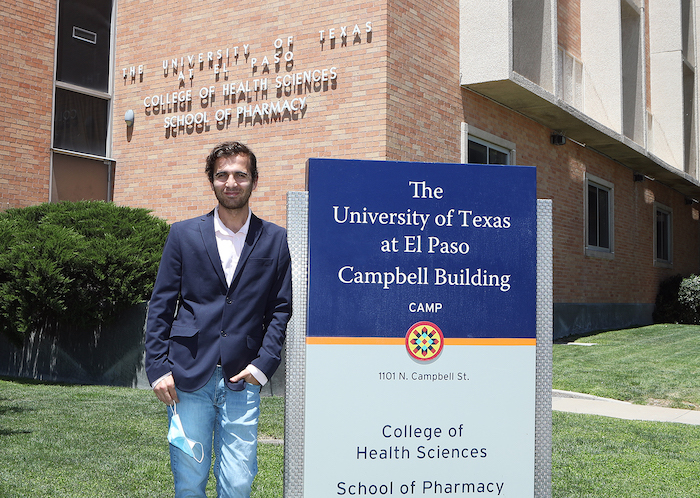UTEP Study Examines COVID-19 Stress, Coping Strategies, and Well-Being
Last Updated on May 29, 2020 at 12:00 AM
Originally published May 29, 2020
By UC Staff
UTEP Communications
EL PASO, Texas – Active coping, denial, emotional support, humor and religion are among the coping strategies that help people with chronic conditions and disabilities deal with stress caused by the COVID-19 pandemic, according to a recently published study written by researchers at The University of Texas at El Paso.

Emre Umucu, Ph.D., assistant professor of rehabilitation counseling, and Beatrice Lee, an incoming rehabilitation counseling faculty member, examined the perceived stress levels and coping mechanisms related to COVID-19, and how coping affects well-being in people with self-reported chronic conditions and disabilities.
Umucu said their exploratory work has provided some preliminary information on how these individuals perceive COVID-19 and how the coping strategies they are using are related to their well-being.
Their findings were recently published in the Rehabilitation Psychology.
“Given that COVID-19 is a new and highly evolving stressor for everyone, especially for people with chronic conditions and disabilities, it is important to understand how individuals cope with it,” said Umucu, director of UTEP’s Veteran VVell-Being Lab (V3). “Measuring and quantifying COVID-19-related stress and coping strategies in individuals with chronic conditions and disabilities can help clinicians and researchers understand the potential negative effects of COVID-19 among people with chronic conditions and disabilities.”
Findings from the study may help clinicians, researchers and policymakers gain a better understanding of the use of coping strategies in individuals with chronic conditions and disabilities facing the pandemic. Learn more here: https://pubmed.ncbi.nlm.nih.gov/32406739/?from_term=%22umucu%22&from_filter=years.2020-2020&from_pos=4

Umucu joined UTEP in 2017. His research interests include veterans, positive psychology interventions, mental health, substance use disorders, severe mental illnesses, happiness, resilience, well-being, aging, and psychometrics and test construction. Lee is a 2020 graduate from the University of Wisconsin-Madison’s Rehabilitation Counselor Education Ph.D. program. She will start at UTEP in the fall 2020 semester.
UTEP Master of Rehabilitation Counseling (MRC) Program trains future rehabilitation counselors who provides rehabilitation and mental health counseling services to people with chronic conditions and disabilities.
